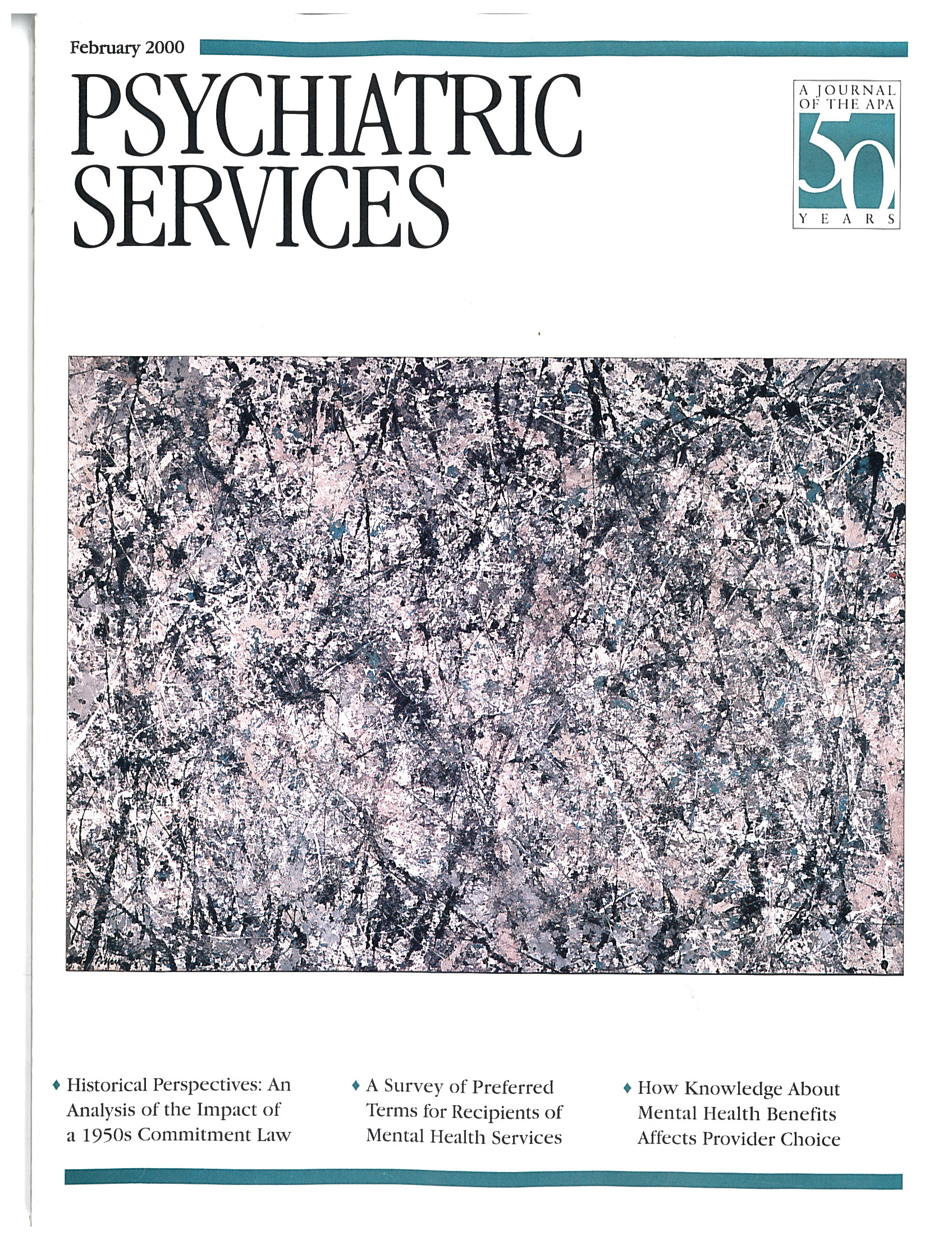General requirements
Psychiatric Services reviews material for publication on condition that it has not been previously published, including electronic publication, and is not being reviewed for publication elsewhere.
Six paper copies of a manuscript, plus a PC-compatible disk with the manuscript file, are needed for peer review. Label the disk with the manuscript name and software program. Send all copies to the editor, John A. Talbott, M.D.,
Psychiatric Services, 1400 K Street, N.W., Washington, D.C. 20005. (Phone inquiries, 202-682-6070; fax, 202-682-6189; e-mail,
[email protected].) Include telephone and fax numbers and e-mail address for the corresponding author.
For peer review, all material, including case reports and references, must be double-spaced on standard-size paper, with all margins a minimum of 1 1/2 inches. All pages should be numbered.
Authors must protect patient anonymity and disguise identifying information.
Types of articles
Please state in the covering letter the type of article submitted and the word count (excluding references and tables).
Regular articles, including research reports.
In general, articles should not exceed 3,000 words excluding references and tables, although some exceptions are made by the editor. For articles not reporting research studies, include an unstructured abstract of 100 to 150 words providing factual information.
Research reports must include a structured abstract (maximum 250 words) with the following headings and information: Objective, the study purpose or research question; Methods, including study design, setting, subjects, intervention(s) if any, and main outcome measure(s); Results, the main results of the study; and Conclusions directly supported by the data.
Research reports should follow these guidelines:
1) Use the standard format of introduction, methods, results, discussion, and conclusions. 2) In the last paragraph of the introduction, state the purpose of the research. (If the purpose is not stated as a research question, it should be translatable into a research question.) Also indicate the type of study design, such as experiment, survey, or retrospective or prospective study. 3) Include data on the sex, age, and race of the study subjects. 4) Include the dates the original data were collected. 5) Preferably in the methods section, describe the data analysis procedure concisely and in a manner understandable by nonstatisticians. 6) In the results section, including tables, report only the findings related directly to the research purpose or research question. Omit other data. 7) Report numbers for all percents. 8) When reporting statistically significant results, always report the observed test statistic value, degrees of freedom, probability level, and, for t and F tests, whether repeated measures were used.
The journal considers publication of randomized research trials with negative findings if they are accompanied by adequate statistical power analysis and a discussion of what was learned from the research.
Literature reviews and special articles.
Generally they are solicited by the editor and are 4,000 to 7,000 words plus no more than 100 references. Anyone interested in submitting such material should consult the editor. Reviews should focus on recent literature.
Literature reviews must include a structured abstract (maximum 250 words) with the following headings and information: Objective, the primary purpose of the review; Methods, the data sources searched, how studies were selected or excluded, and (if applicable) how data were abstracted; and Results and Conclusions, the main findings or conclusions from the review and their applicability.
Brief reports.
Maximum length is 1,200 words, plus no more than ten references and one table or figure. Include an unstructured abstract of 100 words maximum. When reporting research in a brief report, follow the guidelines for research reports, above, but provide an unstructured abstract of 100 words maximum.
Reports of unusual cases.
Reports describing unusual or challenging patients and their management should not exceed 1,200 words plus ten references. They should consist of a brief literature review, an account of the case and its treatment, and a discussion. Include an unstructured abstract of 100 words maximum.
Commentaries.
Provocative commentaries of 425 words maximum are invited for Taking Issue. Authors may also submit commentaries of up to 1,200 words and ten references for the Open Forum section. The editor may invite one or more commentaries (for Open Forum or elsewhere) on any paper accepted for publication. Authors may be asked for source material to support factual statements in opinion pieces.
Letters.
Letters (published at the editor's discretion) can be no more than 500 words with a maximum of three authors and five references. Letters related to material published in Psychiatric Services will be sent to the author for possible reply.
Columns.
Material for columns is solicited by the column editors. Authors of possible submissions should contact the column editor directly.
Book reviews.
Books to be considered for review should be sent to the book review editor, Jeffrey L. Geller, M.D., M.P.H., Department of Psychiatry, University of Massachusetts Medical School, 55 Lake Avenue North, Worcester, Massachusetts 01655. Book reviewers are selected by Dr. Geller; potential reviewers should contact him.

